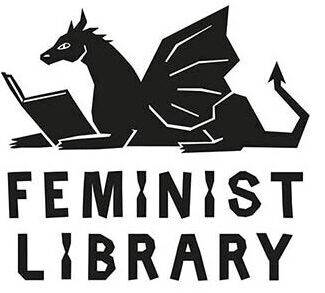Feminist Theology Introduction by Olivia Wilson
Feminist Theology Introduction by Olivia Wilson
Theology, the study of the divine and religious belief, has historically been a predominantly
male discipline, (as with a lot of subjects!). Although feminist theological insights can be
traced prior, the prominence of ‘feminist theology’ really emerged in the 1970s.
Feminist theology is a broad term, and its purpose or objective varies depending on the
theologian. However, often feminist theology involves reconstructing a less one-sided
perspective and approach to the study of theology. It aims to recognise, amplify, and
explore the voices of the marginalised, including the presence of women in religious
cultures, both currently and historically. Feminist theology has been highlighting, and often
correcting, the fingerprints men have left over scriptural translations, recounts of historical
events, and more generally the study of humanity and the divine.
Taking Christianity as an example, feminist theology has challenged the patriarchal language
of ‘God the father’ and ‘the son’, it has questioned the true meaning behind Biblical
passages that have been used to oppress women, and it has given emphasis to important
Biblical women who have been marginalised or ignored.
As with feminism more broadly, opinions and solutions differ substantially between each
scholar, even down to foundational principles. Some feminist theologians view the Church
as inherently patriarchal whereas others strive for radical change to create equality. Another
example is that some feminist theologians in Christianity have sought to subvert patriarchal
habits of speech by applying feminine pronouns to God, they believe that only by
recognising a ‘goddess’ will women truly be valued. Whereas others believed this only
creates a ‘tokenised derivative of the Christian God’ 1 and seek a solution elsewhere.
Feminist theology is represented throughout the major religions and more broadly in
philosophical thought. Scholars have explored the narratives of Hindu women saints and
what approaches to feminist equality and liberation arise out of them. Others have sought
to address aspects Shari’a law in Islam. Feminist theology has also played its part in
ecofeminism and the rejection of dualism between ‘man’ and ‘woman’. It is such a broad
discipline that there is likely something for everyone!
The importance of feminist theology is not just for those women who have religious beliefs
or belong to a religious tradition. Religion has had a vast impact on the development of
modern society, including language, culture and areas that we may now define as secular.
Therefore, the fact that traditionally only men have been involved in the study of religion
has certainly contributed to the patriarchal stance of today’s society. Feminist theology
discusses humanity, our existence, and our place in the universe, religious or not, and is
therefore pertinent to all.
(1 Beyond God the Father: Towards a Philosophy of Women’s Liberation (Beacon Press, 1973))
Reading List from The Feminist Library Catalogue
Mary Daly – Gyn / ecology the metaethics of radical feminism
Mary Daly – Beyond God the Father: towards a philosophy of women’s liberation
Mary Daly – The Church and the second sex
Rosemary Radford Ruether – New woman, new Earth: Sexist ideologies and human
liberation
Rosemary Radford Ruether – Religion and sexism; images of woman in the Jewish and
Christian traditions
Rosemary Radford Ruether – Women of Spirit: Female leadership in the Jewish and Christian
traditions
Fatima Mernissi – Beyond the veil: male-female dynamics in a modern Muslim society
Leila Ahmed – Women and gender in Islam
Simone De Beauvoir – The second sex
